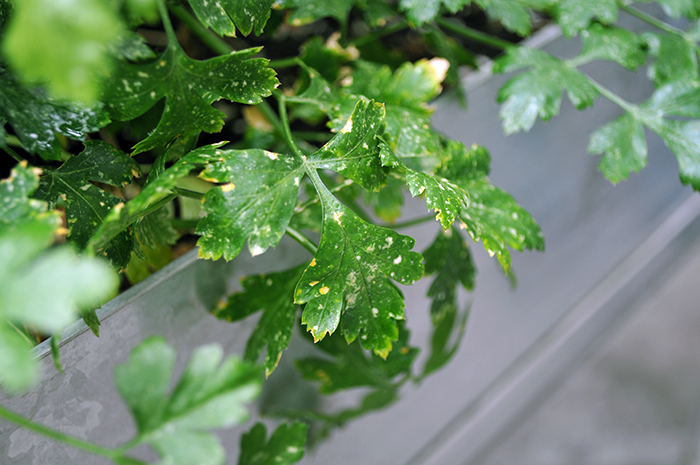

Now that your garden is in full swing you might start to see damage to your plants such as chewed leaves. There is no such thing as a pest free garden. Potential pests include caterpillars, beetles, dogs, deer, and the list goes on and on. When it comes to controlling insects spraying insecticides can be very beneficial to killing the insects but can also harm you plants if used incorrectly.
When using an insecticides or pesticide be sure to:
- Never apply outside on a windy day. This can cause drift, the movement of pesticides away from the target area.
- Only apply the needed amount.
- Keep the insecticide away from the plants you do not want to treat. Pest control products can impact plants differently so be sure to use the correct type for your plants.
- Never spray your plants in direct sunlight. This can cause damage to the plant tissue possibly killing your plant.
Instead of using an insecticides full of chemicals to control pests some gardeners prefer to use insecticidal soaps to protect their gardens. These soaps work just as well as typical pesticides but are safer for your plants and the environment. Just keep in mind when choosing between chemical and soap that soaps typically take more than one application to be affective, while chemical sprays typically work after the first use.
If soap is the right choice for you, these products can be found in garden supply stores. If home remedies are more your style there is plenty of homemade options out there, here is our favorite homemade insecticidal soap recipe.
Combine 5 tablespoons of pure liquid soap to 1 tablespoon pure water then pour the mixture into a spray bottle or garden sprayer to apply. Like all home remedies the recipe is open to variations. For the soap these include adding cooking oil to help the solution last longer and vinegar to help target powdery mildew. For another change, the liquid soap can be swapped out with a bar or pure soap just keep in mind the recipe won’t be as exact as it is with the liquid. No matter what method you choose, these tips will help keep your garden beautiful and pest free.

